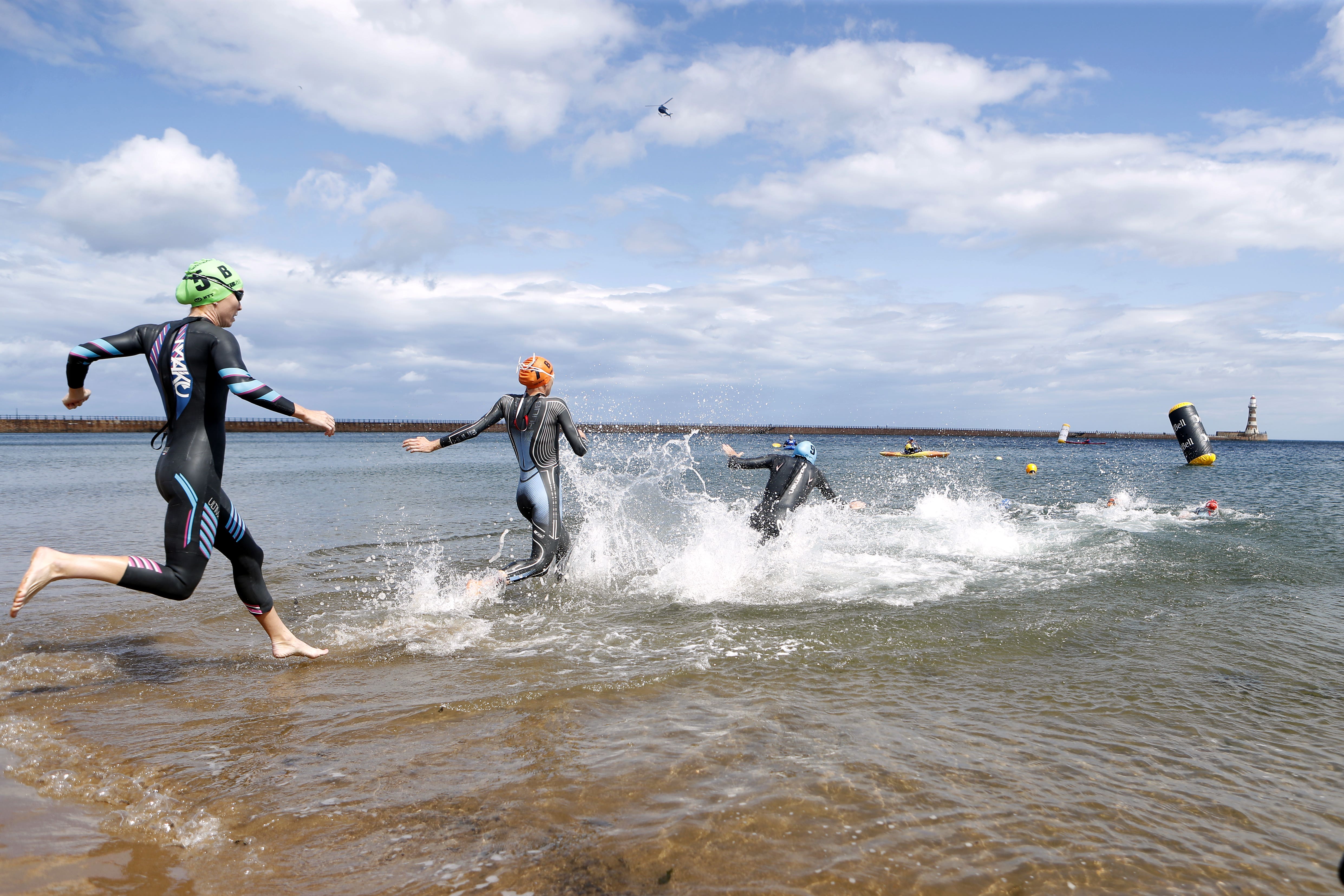Exact source of norovirus found in sea swim triathletes may not be known
Scores of athletes fell ill after taking part in a swim off Roker Beach in Sunderland.

Your support helps us to tell the story
From reproductive rights to climate change to Big Tech, The Independent is on the ground when the story is developing. Whether it's investigating the financials of Elon Musk's pro-Trump PAC or producing our latest documentary, 'The A Word', which shines a light on the American women fighting for reproductive rights, we know how important it is to parse out the facts from the messaging.
At such a critical moment in US history, we need reporters on the ground. Your donation allows us to keep sending journalists to speak to both sides of the story.
The Independent is trusted by Americans across the entire political spectrum. And unlike many other quality news outlets, we choose not to lock Americans out of our reporting and analysis with paywalls. We believe quality journalism should be available to everyone, paid for by those who can afford it.
Your support makes all the difference.The exact source of an outbreak of sickness and diarrhoea among scores of triathletes who fell ill after swimming off the Sunderland coast may never be known, experts have said.
Norovirus was the most likely cause after it was detected in samples that were given by 33 of the 88 competitors in the British Triathlon-organised event last month.
But it remains unclear whether the illness was spread by swimming in the sea, or by another means.
The UK Health Security Agency (UKHSA) said tests were carried out for a range of viral and bacterial pathogens that can cause sickness and diarrhoea, with 19 of the 33 – 60% – showing evidence of norovirus infection.
The UKHSA said the remainder were positive for other infections including sapovirus, astrovirus and rotavirus.
E.coli levels were found to be high off the coast at the time, leading to complaints that the swimming event went ahead.
But the UKHSA said to date there have been no confirmed reports of micro-organisms, such as E.coli O157/Stec (Shiga toxin-producing Escherichia coli), which may cause severe gastrointestinal illness.
Although no Stec has been detected, laboratory results do show other E.coli present in four samples but people can naturally carry organisms in their gut, the UKSHA said, and it is not possible to say if they had it from competing, or were carrying the organisms previously.
A spokesperson said: “The predominance of norovirus makes it the most likely explanation of illness in participants.
“Norovirus is very easily transmitted through contact with people with the infection and any food, water, surfaces or objects that have been contaminated with the virus.
“Although investigations continue, we may never know the exact source of infection.
“It is possible for norovirus infection to occur following exposure to contaminated water, but again it has not been possible to identify the likely cause of infection from investigations to date and there are other scenarios in which infection could also have been spread.”
Dr Kirsty Foster, consultant in health protection, said: “We thank everyone who took the time to contact British Triathlon to undertake sampling and respond to our epidemiological investigations, and I hope that today’s preliminary findings will offer some reassurance.
“Norovirus is a very unpleasant stomach bug but tends to pass after a few days with most people usually making a complete recovery without any specific treatment.”
She added: “Many people enjoy open swimming and the considerable social and wellbeing benefits it brings.
“However it is important to remember that anyone can become unwell from swimming in open water as there will always be micro-organisms present.”
About 2,000 people took part in the UK leg of the World Triathlon Championship series in Sunderland, which included a swim off the city’s Roker Beach.
Environment Agency sampling at the beach on July 26 detected 39 times the amount of E.coli found in the water during typical readings.
E.coli is a bacterial infection that can cause stomach pain and bloody diarrhoea.
Australian triathlete Jake Birthwistle, who competed in the event, posted the Environment Agency’s results on Instagram and said he had felt ill after the event.
He said: “Have been feeling pretty rubbish since the race, but I guess that’s what you get when you swim in shit. The swim should have been cancelled.”